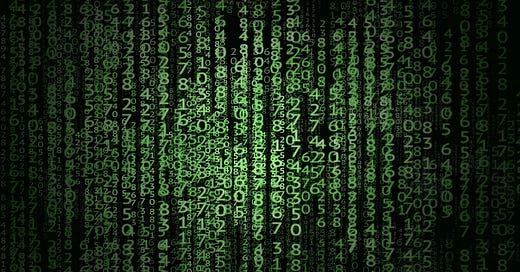Matrix Resurrections: What Does Existence Outside of Time Mean?
Call me a sentimental child, but I liked watching Neo and Trinity fly off into the sunset. I liked watching them fly in the same way those random birds kept flying in a circle. Did it make sense?
For all the latest Matrix movie’s faults The Matrix: Resurrections tried to play with an interesting concept, the difference between linear speed and time.
In the previous two reviews, we discussed Trinity becoming the One, the merit behind the writer’s decision, and one of the fatal flaws within the Matrix series as whole, which is technology being used as an ambiguous magic system rather than a system with clearly defined rules. This time we’ll discuss the movie’s villain, the The Analyst.
I vacillated about this character, unable to make up my mind about whether or not the Analyst was a worthy addition to the series. To be honest, I’m still not sure, but I’m leaning toward yes because of the way Lana Wachowski worked around Neo’s abilities. Admittedly, it would’ve been more consistent to weaken Neo by emphasizing that he had not regained his full powers, which would’ve done a better job justifying the ending, but for whatever reason, the powers that be chose to have Neo retain is his incredible speed. The Analyst worked around this issue by slowing down time within the Matrix. For once, the mechanics behind this decision actually made sense. The Analyst is the successor of the Architect who built the Matrix and was the only program who existed outside of it. Therefore, it stands to reason that the Analyst would be able to alter time since Matrix time would have no affect on him. It was a clever work around Neo’s abilities without resorting to another dualistic relationship to the One for…reasons.
However, the story undermines its own idea at the end of the film. When Trinity realizes who she is and decides to leave the Matrix with Neo, Agent_Smith appears out of nowhere, unaffected by the Analyst’s abilities. Smith gives some cursory explanation which amounts to the Analyst was paying attention to Neo so he wasn’t focused on Smith; therefore, Smith could do whatever he wanted. We’re not given much time to think about this because a flashy fight scene follows immediately afterward.
Unfortunately, we’re once again left with an explanation that makes no sense. If the Analyst is altering time, he should be focused on the Matrix, not Neo. It shouldn’t matter who he’s paying attention to because everyone exists inside the Matrix. But to follow through with that idea would give the Analyst god-like powers, and he could end everyone with a snap. Sure, there are reasons why he wouldn’t want to do such a thing, but to explore the full scope of his power as a being outside of time would force the viewer to justify why he would hold himself back when forced into a corner. So, the full nature of the Analysts powers is ignored, and the viewers are, once again, left with an interesting concept which is barely explored.
With regards to who the Analyst is and whether or not his existence is justified within the Matrix, the movie does a decent job explaining these details. We don’t see much, but we are told that the original Matrix collapsed because so many people left, and the Machines went to war because of a supply crisis. This war destroyed many programs, including the Oracle, and if the Architect was not outright killed, he was, at least, gotten rid of because he no longer served a purpose. The Analyst took over, convinced the machines to revive Neo and Trinity, and he used their longing for each other as a more consistent source of energy for the Matrix. Sure, this last idea has problems because we were given no indication that Trinity had Neo’s powers in the previous trilogy, but to be fair, the Architect did tell Neo that Trinity was the one variable none of his predecessors had, so the concept is not completely unfounded.
This movie did so poorly in theaters that the studio will not be making a sequel, and I’m glad, but not for the reasons one might think. I like the ending of this film better than the ending of the original trilogy. The The Matrix Revolutions (2003) left me confused and annoyed; whereas, The Matrix Resurrections only left me confused, so I’ll call that an improvement. Therefore, I’d rather end the series here, than keep the ending of the trilogy. The original Matrix was nothing short of a classic, but the other two films were a rushed, convoluted mess. People forget how awful the other two were. Time heals all aggravations.
Call me a sentimental child, but I liked watching Neo and Trinity fly off into the sunset. I liked watching them fly in the same way those random birds kept flying in a circle. Did it make sense?
No. What was the theme or point behind the parallel? I have no clue, but I can forgive a lot of stupid for the sake of a happy ending. And I think that’s what Wachowski was trying to give us.
If a soulless studio forces you to make a sequel that doesn’t need to be made, you might not be able to make the movie coherent, but the very least you can do is give the movie a little heart.
Tragedies are not bad by any means, but if you’re going to kill your main characters, you better have a point. The Matrix Revolutions failed in this respect. I walked away from that film thinking, “What was that about?” Whereas The Matrix Resurrections left me thinking, “Good for them.” It’s not much, but I’ll take it over the alternative.




